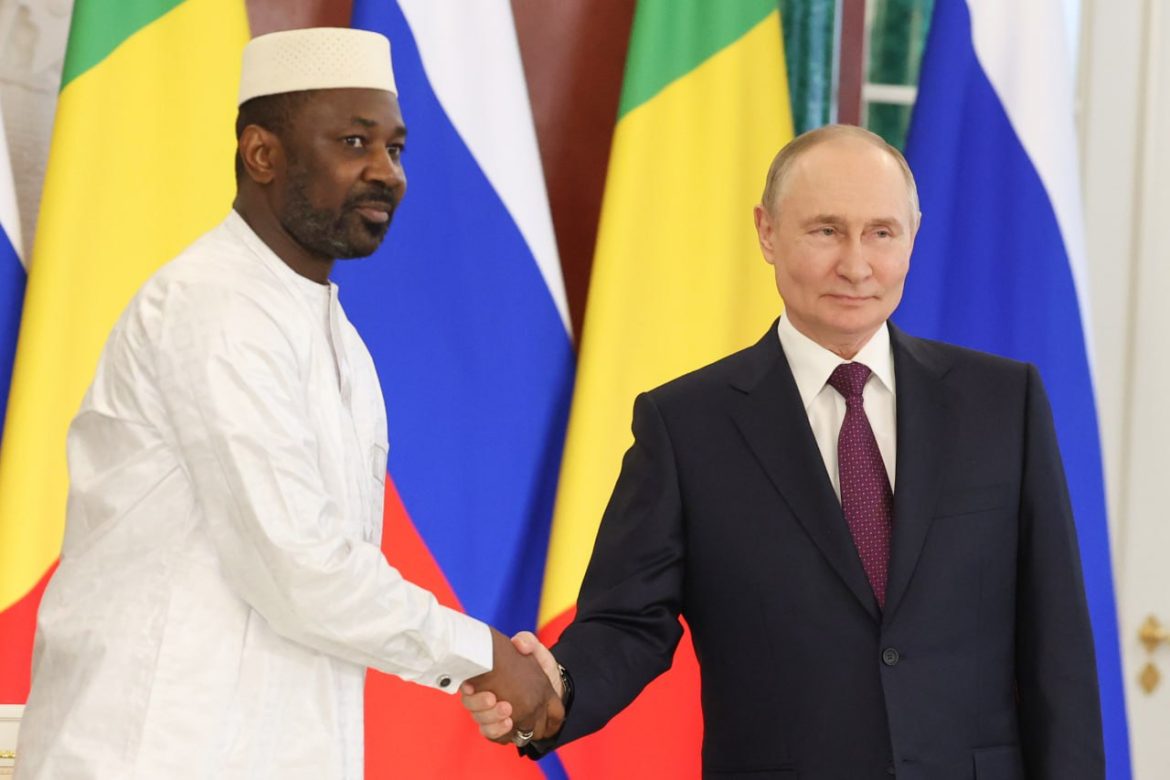Mali and Russia have signed a series of new agreements aimed at boosting mutual trade, strengthening economic cooperation, and expanding their strategic alliance, particularly in the areas of energy and security. The announcement was made following a high-profile visit to Moscow by Malian junta leader Colonel Assimi Goïta, during which he held two hours of talks with Russian President Vladimir Putin.
The visit marks the latest in a string of deepening engagements between Mali and Russia since Col Goïta took power in a 2021 coup, ousting the country’s civilian government. In a statement released by the Kremlin, both countries confirmed their intention to expand cooperation in several key sectors, including nuclear energy, geological exploration, logistics, and humanitarian aid.
President Putin acknowledged that while trade volumes between the two countries remain “modest,” there has been a steady upward trend. He added that future projects are expected to improve economic ties and contribute to Mali’s development goals. One of the most significant announcements was the renewed commitment to collaborate on the construction of a Russian-designed nuclear power plant in Mali—an ambitious project that could transform the country’s energy sector.
Col Goïta praised Russia for its hospitality and reaffirmed Mali’s intention to deepen the partnership. “This official visit will contribute to further deepening our relationship in a spirit of mutual trust and respect for sovereignty,” Goïta said. He also expressed appreciation for Russia’s ongoing support across a wide range of sectors, saying the cooperation now “covers many sectors,” including energy, security, and development.
The strategic relationship between Mali and Russia has notably grown following Mali’s pivot away from its traditional Western allies, particularly France and the United Nations. This shift mirrors regional trends, as other Sahel countries like Burkina Faso and Niger—both also led by military governments—have similarly moved closer to Moscow in recent years after severing ties with France and other Western actors.
Military cooperation remains a cornerstone of the Mali-Russia alliance. After the departure of French and UN troops, Russia has emerged as Mali’s primary security partner. Russian mercenaries, particularly those affiliated with the now-dissolved Wagner Group, previously provided battlefield and training support to Malian forces. While Wagner has officially withdrawn, Russia’s Africa Corps—a newly formed military structure—continues to operate in the region.
During the Moscow visit, Russian Defence Minister Andrei Belousov met with Malian Defence Minister Sadio Camara for additional bilateral discussions. Belousov emphasized the importance of practical outcomes in the partnership. “The priority of the Russia-Mali partnership is to achieve practical results in enhancing security and sovereignty. This approach is the key to any success and victory,” he said.
Despite the strengthened ties and growing Russian involvement, Mali continues to grapple with severe internal insecurity. The military initially cited worsening violence and the failure of civilian leadership to address the threat posed by armed groups as a justification for the 2021 coup. However, in the years since, the security situation has continued to deteriorate, with attacks by jihadist insurgents and communal violence remaining widespread.
Critics argue that foreign military partnerships, including those with Russia, have done little to stabilize the country. Still, Mali’s government maintains that long-term cooperation with Russia is essential for building the nation’s sovereignty, resisting foreign interference, and investing in self-reliant development strategies.
Col Goïta’s latest trip to Moscow is expected to solidify Mali’s strategic orientation and attract further Russian investment in infrastructure and energy. The nuclear energy pledge, in particular, represents a major potential shift in Mali’s development trajectory, provided it materializes into a viable and sustainable project.
